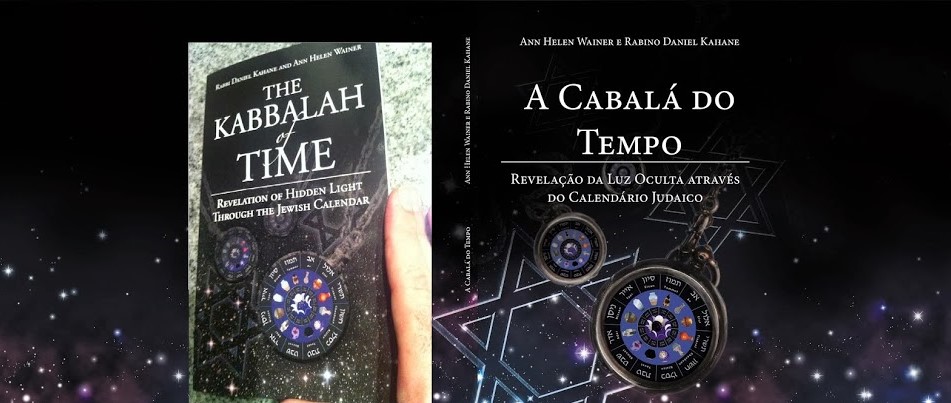PEREK SHIRAH: The horse is saying, "Behold, as the eyes of
the servants to the hand of their master, as the eyes of the maidservant to the
hand of her mistress, so are our eyes to G-d our Lord until He will favor
us." (Psalms 123:2)
PIRKEI AVOT: Ben Azzai
would say: Run to pursue a minor
mitzvah, and flee from a transgression. For a mitzvah brings another mitzvah,
and a transgression brings another transgression. For the reward of a mitzvah
is a mitzvah, and the reward of transgression is transgression.
He would also say: Do not scorn any man, and do not
discount any thing. For there is no man who has not his hour, and no thing that
has not its place.
SEFIRAH: Tiferet shebeHod (beauty
and balance within the context of glory and gratefulness)
The thirty-first week of the year is
the week of Rosh Chodesh Iyar. It
also includes the day of remembrance of the fallen soldiers of Israel and
victims of terror, as well as the fifth of Iyar, which marks the miraculous victory of Israel in its
War of Independence. In this week, the horse in Perek Shirah sings about how like servants, our eyes are fixed on
the Lord our G-d, until He has compassion over us. (Psalm 123:2) From beginning
to end, during this month we are involved in the mitzvah of counting the omer. As mentioned previously, this month
is also known as a month of healing, and is formed by the Hebrew letters alef, yud, and reish, which serve as an acronym for the verse “Ani Hashem Rofecha,” "I am G-d your
Healer," in which each word begins with one of these three letters.
The month of Iyar is represented by the Tribe of Issachar. The Torah describes
Issachar as, "a strong-boned donkey" (similar to the horse), which
takes upon itself the yoke of Torah study. Issachar and Zevulun had a
partnership in which Zevulun was involved in commerce and supported Issachar in
its total dedication to Torah. This dedication to Torah is symbolized by Rabbi
Shimon Bar Yochai, whose yahrzeit is in this month, and of whom it is said, “Toratoh Emunatoh,” that his Torah study was his profession.
There is a clear connection between
this week, the fifth of Iyar and the
War of Independence. The horse, especially in ancient times, symbolizes
military might. An example of this is found in the Song of the Sea, which
describes how when Pharaoh came with his chariots to attack the Jewish people,
G-d threw “horse and rider into the sea.” (This is actually the song of the ox,
later this month, in week 34)[1]
Despite being a symbol of power, the
horse sings of constantly looking to Hashem
for mercy. During the War of Independence, the Jewish people truly fought
mightily and heroically, like horses, and yet their victory was only possible
due to its miraculous nature, a product of Hashem’s
great mercy.
A horse loyally follows the
directions of its rider. Like the horse, the Jewish people waited a long time
and suffered greatly until Hashem
showed us favor and made it possible for us to live in our Holy Land again.
The horse’s song also reflects the
feelings of one who is ill or injured and prays to G-d for healing. This is
connected to the day of remembrance, as well as to the fifth of Iyar itself. One must not forget that
the miracle of Israel’s War of Independence occurred shortly after the
Holocaust, when the Jewish people as a whole was like a sick person in urgent
need.
The number thirty-one contains the
same numerals as thirteen, which, as explained above, represent G-d’s thirteen
attributes of mercy. Furthermore, the number thirty-one is also connected to
the conquest of the Land of Israel. At the end of the conquest of the Land in
the times of Joshua, the Tanach lists
all the kings that were defeated at that time, thirty-one in all.[2]
The number thirty-one is formed by
the Hebrew letters lamed and alef, which in turn spell the word E-l, one of the names of G-d. The name E-l is an expression of infinite power,
but also of infinite mercy.[3]
The word el appears many times in the
horse’s song.
In the Pirkei Avot for this week, Ben Azzai teaches that one must be fast
to perform a mitzvah and to flee from
a transgression; for a mitzvah draws
another mitzvah, while a
transgression draws another. The reward for a mitzvah is a mitzvah,
while the reward for a transgression is a transgression. Similarly, just as one
mitzvah leads to another, physical
and spiritual healing also comes slowly, one step at a time, like the Counting
of the Omer.
Furthermore, Ben Azzai teaches not to
scorn anyone and not to reject any thing, because there is no one who does not
have his moment and there is no thing that does not have its place. This
teaching’s connection with Yom
Ha’Atzma’ut is similar to that of the song of the horse: the Jewish people
and the Land of Israel finally had their moment!
This week’s sefirot combination results in tiferet
shebehod. With patience and balance, step by step, we serve G-d and climb
the ladder to spiritual fulfillment, getting closer and closer to Hashem. In order to perform this task,
we inspire ourselves in the horse’s example, understanding that despite our
strength we are nothing more (and nothing less) than servants of G-d. We should
be proud of our humble connection with G-d and know that the journey towards
Him may at times be slow, but that the arrival at its destination is certain.
[1] See also the last chapters of the Book of Job.
[2] Book of Joshua, Ch.
12
[3] Vedibarta Bam,
available at: http://www.sichosinenglish.org/books/vedibarta-bam/144.htm

No comments:
Post a Comment